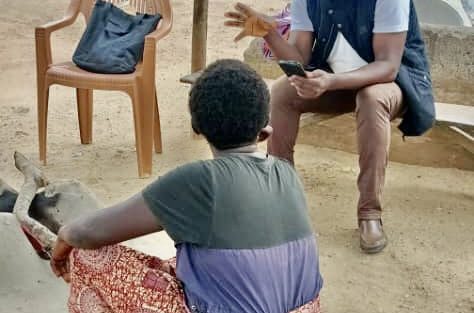ARHR, in collaboration with eight dedicated implementing partners, has officially commenced a comprehensive baseline study aimed at establishing critical benchmarks to assess the progress and impact of the “Putting Women and Girls at the Center of Primary Health Care” project. This initiative, generously funded by Co-Impact, seeks to promote health equity by empowering women and girls to assume leadership roles in health decision-making within their families and communities.
Launched on November 5, 2024, the study spans eight regions, with each partner responsible for collecting data from two districts and six communities. The study aims to gather insights from 62 participants per community, resulting in a robust dataset that represents the perspectives of 496 individuals. Participants, including both women and men, will provide invaluable input that will help shape the project’s focus areas and offer evidence that will support future advocacy efforts.
To ensure the accuracy and reliability of the data, ARHR conducted specialized training sessions for two data collectors from each implementing partner. These trainings equipped the data collectors with the necessary skills to engage effectively with respondents and collect high-quality data, which will be crucial for analyzing the study’s outcomes.
The data collection process is centered around critical issues such as women’s representation in leadership, their ability to exercise agency, access to healthcare services, gender equality within healthcare systems, accountability and feedback mechanisms in healthcare, and the role of families in supporting one another to leverage primary health care systems. ARHR is committed to utilizing these insights to inform policy advocacy and targeted interventions that address barriers to health access and track measurable improvements over time.
The baseline study is essential in ensuring the project delivers on its objectives. By grounding ARHR’s work in evidence, the study will measure the impact and amplify the voices of women and girls in the targeted communities, ensuring their concerns and needs are at the heart of the initiative.
While the data collection process is ongoing and expected to conclude by the end of November 2024, early feedback from participants highlights the urgency of addressing the systemic challenges within the health system. The findings from this research will play a pivotal role in designing interventions that empower women and girls while holding relevant stakeholders accountable for delivering equitable health outcomes.
This action underscores ARHR’s steadfast commitment to advancing health equity in Ghana, ensuring that women and girls are not only participants but leaders in the transformation of primary health care systems across the country.
The implementing partners for this critical initiative include Send Ghana, Young and Lonely Foundation, Songtaba, Progressive Youth Organization (PEYORG), Rights and Responsibilities Initiative Ghana (RRIG), Youth Alive, GLOWA, and the Centre for Community Studies and Development (CENCOSAD).



